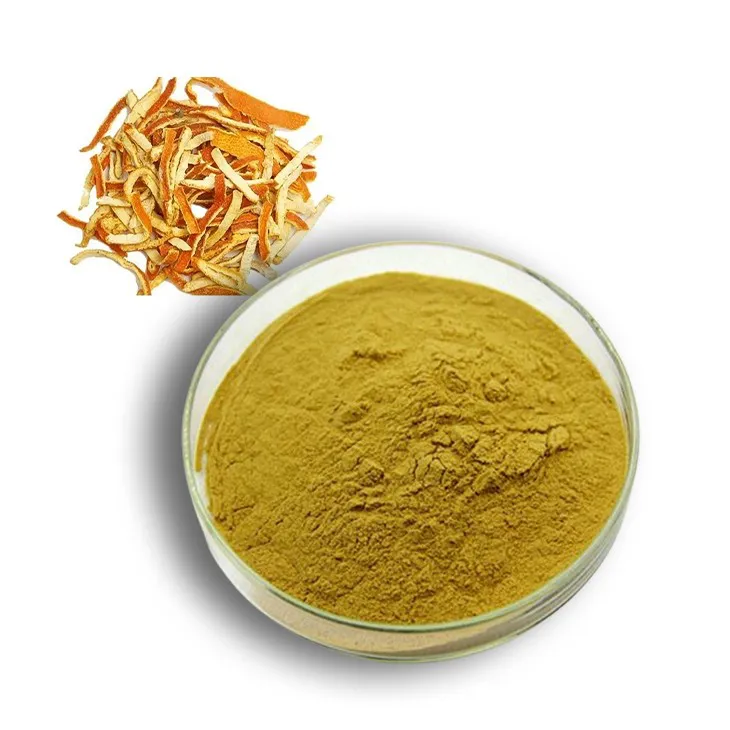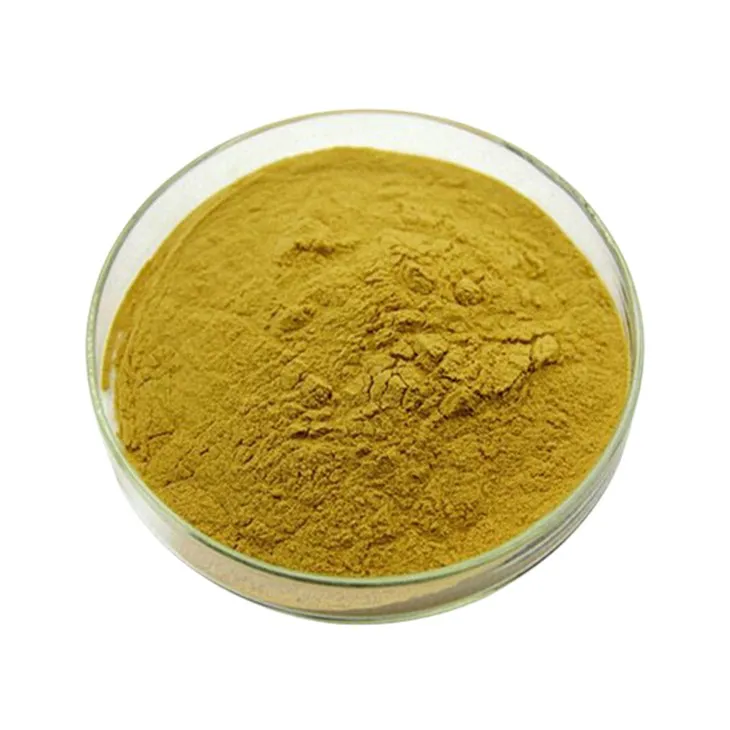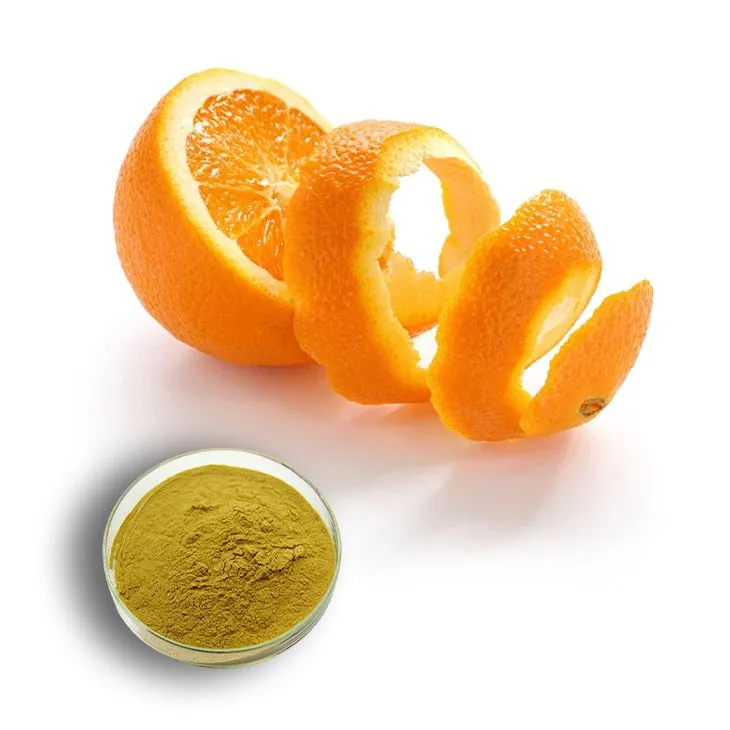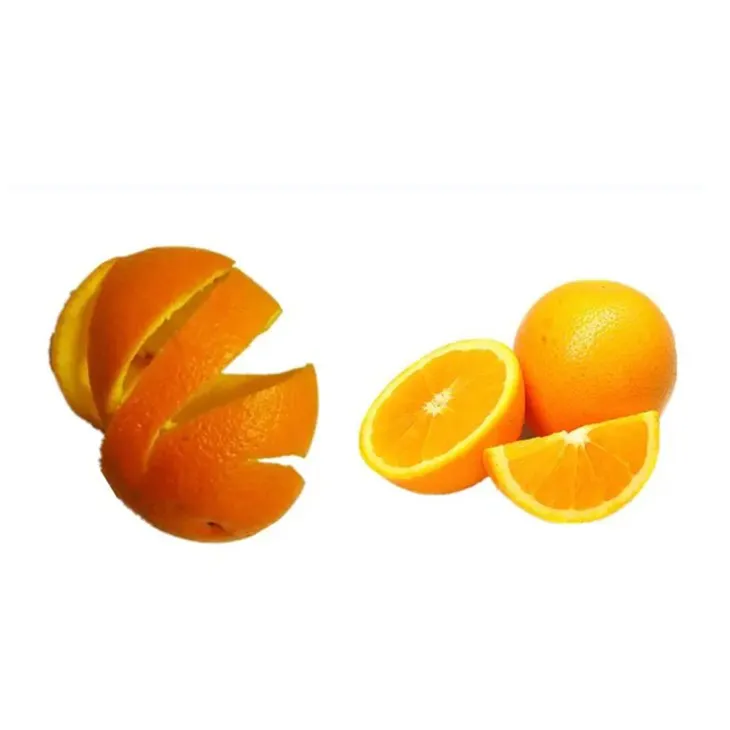- 0086-571-85302990
- sales@greenskybio.com
Hesperidin can reduce high blood pressure.
2024-11-12

1. Introduction to Hypertension
Hypertension, also known as high blood pressure, is a common chronic disease that affects a large portion of the global population. It is a major risk factor for various cardiovascular diseases, such as heart attacks, strokes, and heart failure. Blood pressure is determined by the force exerted by the blood against the walls of the arteries. When this force is consistently too high, it can cause damage to the blood vessels and organs over time.

2. What is Hesperidin?
Hesperidin is a flavonoid that is mainly found in citrus peels. Citrus fruits, such as oranges, lemons, and grapefruits, are rich sources of Hesperidin. It has been the subject of extensive research in recent years due to its potential health benefits, especially in relation to blood pressure regulation.

3. Mechanisms of Hesperidin in Reducing High Blood Pressure
3.1 Vasodilation through Nitric Oxide Release
One of the key mechanisms by which hesperidin can lower high blood pressure is by promoting the release of nitric oxide (NO). Nitric oxide is a signaling molecule that plays a crucial role in vasodilation. When nitric oxide is released in the blood vessels, it causes the smooth muscle cells in the vessel walls to relax, which in turn leads to an increase in the diameter of the blood vessels. This dilation reduces the resistance to blood flow, thereby lowering blood pressure. Studies have shown that hesperidin can stimulate the production and release of nitric oxide in endothelial cells, which are the cells that line the inside of blood vessels.
3.2 Inhibition of the Renin - Angiotensin - Aldosterone System (RAAS)
The renin - angiotensin - aldosterone system (RAAS) is an important hormonal system that regulates blood pressure. When blood pressure drops, the kidneys release an enzyme called renin. Renin then converts angiotensinogen to angiotensin I, which is further converted to angiotensin II by the angiotensin - converting enzyme (ACE). Angiotensin II is a potent vasoconstrictor and also stimulates the release of aldosterone from the adrenal glands. Aldosterone promotes sodium and water retention in the kidneys, which increases blood volume and blood pressure. Hesperidin has been shown to inhibit the RAAS at various levels. It can reduce the activity of ACE, thereby decreasing the production of angiotensin II. This inhibition helps to prevent vasoconstriction and the subsequent increase in blood pressure.
3.3 Antioxidant and Anti - Inflammatory Effects
Hesperidin also exhibits antioxidant and anti - inflammatory properties. Oxidative stress and inflammation are closely associated with hypertension. High blood pressure can lead to increased production of reactive oxygen species (ROS) in the blood vessels, which can cause oxidative damage to the endothelial cells and promote inflammation. Hesperidin can scavenge free radicals and reduce oxidative stress. By doing so, it helps to protect the endothelial function and maintain the integrity of the blood vessels. Additionally, its anti - inflammatory effects can reduce the inflammation in the blood vessels, which is beneficial for blood pressure control. For example, it can inhibit the expression of inflammatory cytokines and adhesion molecules in the endothelial cells.

4. Evidence from Animal Experiments
Animal experiments have provided valuable evidence regarding the blood - pressure - lowering effects of hesperidin. In rodent models of hypertension, hesperidin supplementation has been shown to significantly reduce blood pressure. For instance:
- In a study using spontaneously hypertensive rats (SHR), hesperidin was administered orally for a certain period. The results showed that the systolic and diastolic blood pressures of the SHR treated with hesperidin were significantly lower compared to the control group. The rats also exhibited improved endothelial function, as measured by various parameters such as nitric oxide production and endothelial - dependent vasodilation.
- Another animal study focused on the effects of hesperidin on hypertensive mice. The researchers found that hesperidin treatment not only reduced blood pressure but also had beneficial effects on the heart and kidneys. It decreased the hypertrophy of the heart muscle, which is often associated with hypertension, and reduced the damage to the renal tissue.

5. Clinical Studies on Hesperidin and High Blood Pressure
Several clinical studies have also been conducted to investigate the effects of hesperidin on high blood pressure in humans. However, the results are somewhat mixed:
- In a small - scale clinical trial, patients with mild to moderate hypertension were given hesperidin supplements for a few weeks. The study observed a modest reduction in blood pressure in some of the participants. However, the sample size was relatively small, and more extensive research was needed to confirm the findings.
- Another study compared the effects of hesperidin - rich citrus extracts with a placebo in hypertensive patients. While there was a trend towards lower blood pressure in the group receiving the hesperidin - rich extracts, the differences were not statistically significant. This could be due to various factors, such as the dosage of hesperidin used, the duration of the study, or the heterogeneity of the patient population.
6. Obtaining Hesperidin from Citrus Fruits
Citrus fruits are a natural source of hesperidin. Eating a diet rich in citrus fruits can provide a certain amount of hesperidin. For example:
- Oranges are one of the most popular citrus fruits. A medium - sized orange contains a significant amount of hesperidin, especially in the peel. However, most people do not consume the peel directly. Orange juice, which is made from the pulp of the fruit, also contains some hesperidin, although the concentration may be lower compared to the whole fruit.
- Lemons are another good source of hesperidin. Lemon peel can be used in cooking or to make lemon zest, which can be added to various dishes. Consuming lemon - based products, such as lemonade or lemon - flavored desserts, can also contribute to the intake of hesperidin.
- Grapefruits also contain hesperidin. Similar to oranges, the peel of the grapefruit has a relatively high concentration of hesperidin. However, grapefruit can interact with certain medications, so people taking medications should be cautious when consuming grapefruit or grapefruit products.
7. Caution in Using Hesperidin Supplements
While hesperidin shows promise in reducing high blood pressure, caution should be exercised when using hesperidin supplements.
- Firstly, the safety and long - term effects of hesperidin supplements have not been fully established. There may be potential side effects or interactions with other medications that are not yet known. For example, as mentioned before, grapefruit, which is a rich source of hesperidin, can interact with some drugs, such as certain statins and antihypertensive medications.
- Secondly, the quality and purity of hesperidin supplements on the market can vary widely. Some supplements may not contain the claimed amount of hesperidin or may be contaminated with other substances. It is important to choose high - quality supplements from reliable sources if one decides to use them.
- Finally, self - medicating with hesperidin supplements without proper medical supervision is not advisable. People with hypertension should always consult their healthcare providers before starting any new supplement, as it may interfere with their existing treatment plan or have unforeseen consequences on their health.
8. Conclusion
Hesperidin, a flavonoid mainly from citrus peels, has shown potential in reducing high blood pressure through multiple mechanisms, including vasodilation via nitric oxide release, inhibition of the RAAS, and antioxidant and anti - inflammatory effects. Animal experiments have provided strong evidence for its blood - pressure - lowering effects, while clinical studies in humans have shown some promising but mixed results. Citrus fruits are a natural source of hesperidin, and incorporating them into the diet can be a healthy way to potentially obtain its benefits. However, when it comes to hesperidin supplements, caution is necessary due to the lack of complete understanding of their safety and potential interactions. More research is needed to fully clarify the role of hesperidin in blood pressure management and to develop safe and effective strategies for its use in the prevention and treatment of hypertension.
FAQ:
1. What is hesperidin?
Hesperidin is a bioflavonoid mainly found in citrus peels. It has several beneficial properties and is being studied for its potential role in reducing high blood pressure.
2. How does hesperidin reduce high blood pressure?
Hesperidin can reduce high blood pressure in multiple ways. It promotes the release of nitric oxide, which helps in dilating blood vessels. Also, it inhibits the renin - angiotensin - aldosterone system. Additionally, its antioxidant and anti - inflammatory effects may contribute to its blood - pressure - lowering capabilities.
3. Are there any clinical studies on hesperidin for high blood pressure?
Yes, some clinical studies, along with animal experiments, have shown the blood - pressure - lowering effects of hesperidin. However, more research is still needed to fully understand its efficacy and safety in humans.
4. Can we get hesperidin from natural sources?
Yes, hesperidin can be obtained through consuming citrus fruits. Citrus fruits are a natural source of hesperidin, and incorporating them into the diet may provide some amount of this beneficial compound.
5. Should we be careful when using hesperidin supplements?
Yes, hesperidin supplements should be used carefully. While hesperidin shows potential benefits, taking supplements may have potential risks, such as interactions with other medications or over - dosage issues. It is always advisable to consult a healthcare provider before starting any supplement.
Related literature
- The Role of Hesperidin in Cardiovascular Health"
- "Hesperidin and Hypertension: Current Evidence and Future Perspectives"
- "Beneficial Effects of Hesperidin on Blood Pressure Regulation: A Review"
- ▶ Hesperidin
- ▶ Citrus Bioflavonoids
- ▶ Plant Extract
- ▶ lycopene
- ▶ Diosmin
- ▶ Grape seed extract
- ▶ Sea buckthorn Juice Powder
- ▶ Fruit Juice Powder
- ▶ Hops Extract
- ▶ Artichoke Extract
- ▶ Mushroom extract
- ▶ Astaxanthin
- ▶ Green Tea Extract
- ▶ Curcumin
- ▶ Horse Chestnut Extract
- ▶ Other Product
- ▶ Boswellia Serrata Extract
- ▶ Resveratrol
- ▶ Marigold Extract
- ▶ Grape Leaf Extract
- ▶ New Product
- ▶ Aminolevulinic acid
- ▶ Cranberry Extract
- ▶ Red Yeast Rice
- ▶ Red Wine Extract
-
Astaxanthin
2024-11-12
-
Nettle Root Extract
2024-11-12
-
Lemon Balm Extract
2024-11-12
-
Milk Thistle Extract
2024-11-12
-
Centella Asiatica Extract
2024-11-12
-
Golden Seal Extract
2024-11-12
-
Motherwort Extract
2024-11-12
-
Mulberry leaf Extract
2024-11-12
-
White Willow Bark Extract
2024-11-12
-
Red Date Extract
2024-11-12





















